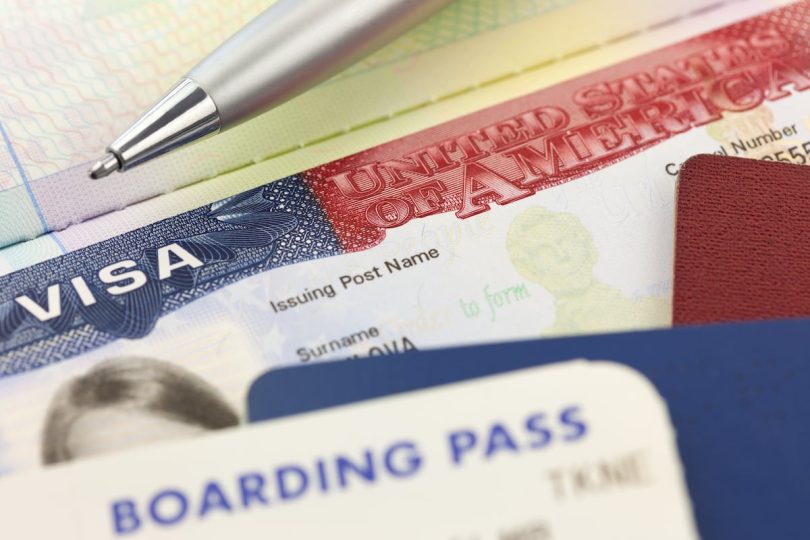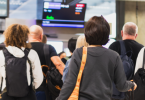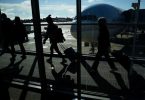The Trump administration is taking a new stab at immigration, reviving a controversial measure briefly introduced during the Republican’s first term. This rule will require some business and tourist visa applicants to post a bond of $5,000, $10,000, or $15,000 to enter the United States. The measure is aimed at citizens of countries with high rates of overstay in the U.S. and poor security in their internal documentation processes. It will take effect on August 20, according to a notice published in the Federal Register. It will begin as a one-year pilot program.
The Department of Homeland Security (DHS) states that the goal of this program is to ensure that the government does not incur extra costs when a visitor violates the terms of their visa. “Aliens applying for visas as temporary visitors for business or pleasure (B-1/B-2) and who are nationals of countries identified by the Department as having high visa overstay rates, where screening and vetting information is deemed deficient, or offering Citizenship by Investment, if the alien obtained citizenship with no residency requirement, may be subject to the pilot program,” the official document states.
A previous version of this immigration policy was installed in November 2020, in the final stretch of Trump’s first term. It was not fully implemented due to the dramatic drop in international travel resulting from the Covid-19 pandemic. That version affected about two dozen countries, mostly African nations, with overstay rates above 10%. The State Department has traditionally discouraged similar measures due to the cumbersome process of posting and canceling the bond. This time, those who pay it will receive it back upon leaving the country, becoming naturalized citizens, or in the event of death. However, if a traveler overstays their visa, they could lose the deposit to cover costs associated with their deportation.
Citizens of countries participating in the Visa Waiver Program are excluded from this measure, and consular officers will reserve the right to waive the bond on a case-by-case basis. This measure is in addition to the recent $250 “integrity fee,” which will take effect in 2026 and will be charged to applicants for most non-immigrant visas, such as tourist, student, and work visas, raising the cost of some by nearly $500.
Which countries could be affected?
The government has not provided an estimate of the number of applicants who could be affected, nor a list of countries that will be subject to the rule. However, 2023 data from Customs and Border Protection reveals that nations with high visa overstay rates include Angola, Liberia, Mauritania, Sierra Leone, Nigeria, Cape Verde, Burkina Faso, and Afghanistan.
The list of affected countries will be published 15 days before the program begins and may be updated with a similar notice. In the 2020 version of the pilot program, the measure applied to travelers from Afghanistan, Angola, Burkina Faso, Myanmar, Chad, Democratic Republic of the Congo, Eritrea, Iran, Laos, Liberia, Libya, Sudan, Syria, and Yemen.
Sign up for our weekly newsletter to get more English-language news coverage from EL PAÍS USA Edition










